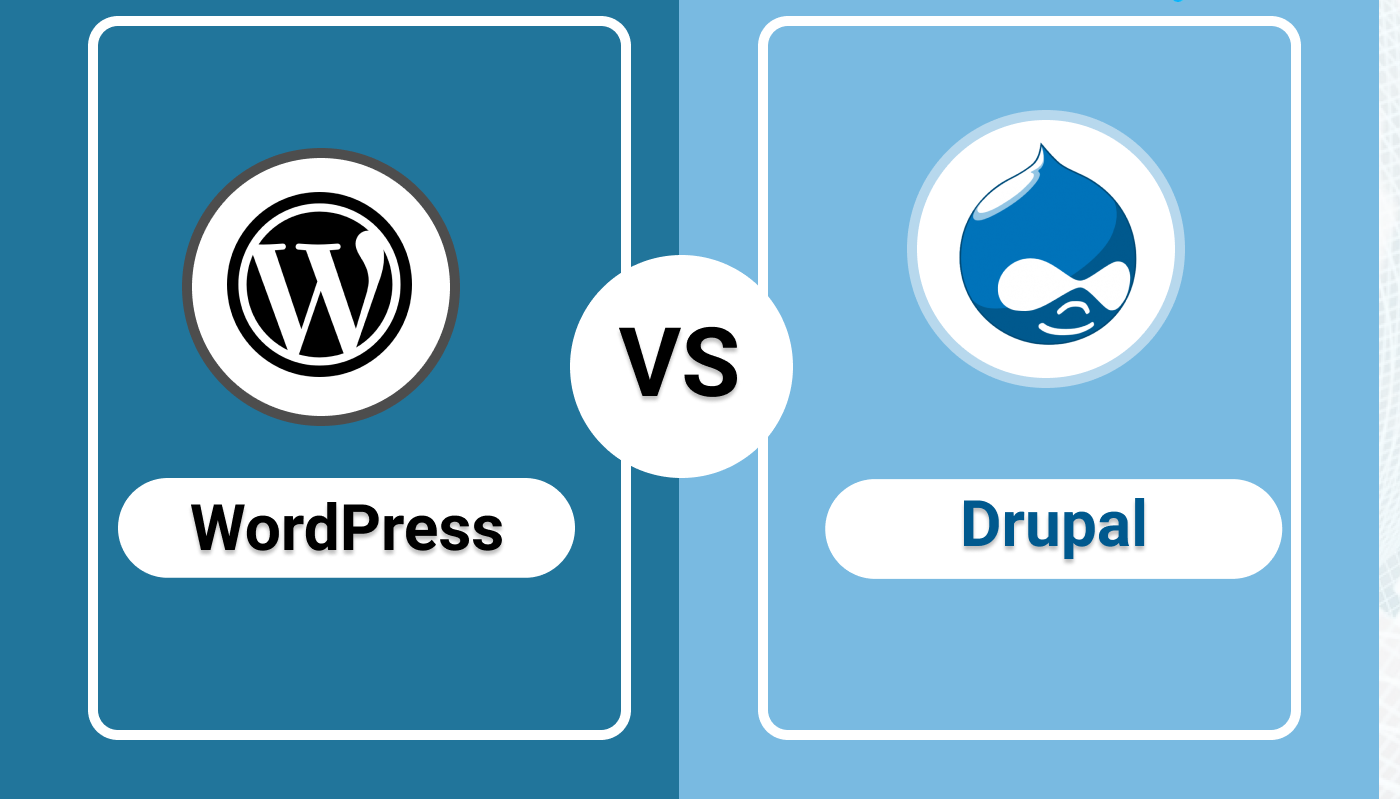Drupal vs WordPress: Choosing the Best CMS in 2024

Drupal vs WordPress: Choosing the Best CMS in 2024
Drupal vs WordPress: Selecting the Best CMS in 2024. The digital landscape has witnessed an exponential surge in online content, demanding robust CMS solutions. Drupal and WordPress stand out prominently, each boasting its own unique features and capabilities. Let’s embark on a journey to dissect these platforms and discern the best CMS for the evolving requirements of 2024.
Drupal: The Power of Complexity
Strengths:
Flexibility and Customization: Drupal is renowned for its flexibility, offering an open-source framework that allows developers to create highly customized, feature-rich websites. This makes it an ideal choice for enterprises and organizations with complex needs.
Scalability: The architecture of Drupal is designed for scalability, ensuring that websites can seamlessly grow to meet increasing demands without compromising performance.
Security: Drupal takes security seriously, boasting a robust security model and a vigilant community that actively addresses potential vulnerabilities.
Weaknesses:
Learning Curve: The extensive capabilities of Drupal come at the cost of a steeper learning curve. New users might find it challenging to navigate the complexities of the platform.
Resource-Intensive: Implementing all the features and functionalities may demand more server resources, potentially affecting hosting costs.
WordPress: The Reign of Simplicity
Strengths:
User-Friendly Interface: WordPress is celebrated for its intuitive and user-friendly interface, making it accessible even to those without extensive technical knowledge. This simplicity has contributed significantly to its widespread adoption.
Extensive Plugin Ecosystem: With a vast array of plugins, WordPress offers versatility and adaptability, allowing users to add functionalities seamlessly without intricate coding.
Community Support: As the most widely used CMS, WordPress enjoys an extensive and active community. This results in frequent updates, bug fixes, and a wealth of online resources.
Weaknesses:
Customization Limitations: While WordPress is highly versatile, its customization capabilities might not match the depth and complexity offered by Drupal. This can be a limitation for those with intricate website requirements.
Security Concerns: The popularity of WordPress makes it a target for security threats. Website owners must remain vigilant and implement security practices to mitigate potential risks.
Choosing the Best CMS in 2024
For Advanced Customization and Scalability: If your website demands intricate customization and scalability for future growth, Drupal is the preferred choice. It is well-suited for large enterprises and organizations with complex needs.
For User-Friendly Experience and Versatility: If ease of use and a vast community-driven ecosystem are paramount, WordPress is the right fit. It caters to a broader audience, including bloggers, small businesses, and those who prioritize simplicity. Drupal vs WordPress: Choosing the Best CMS in 2024
Conclusion
In the ever-evolving CMS landscape of 2024, the choice between Drupal and WordPress hinges on the specific needs and goals of your website. Drupal excels at catering to the complexities of large-scale enterprises, providing advanced customization and scalability. On the other hand, WordPress thrives on simplicity and versatility, making it an excellent choice for smaller ventures and those prioritizing user-friendliness. As you navigate the digital frontier, carefully evaluate your requirements to ensure you choose the CMS that aligns seamlessly with your vision, ensuring a robust and future-proof online presence. Drupal vs WordPress: Choosing the Best CMS in 2024.





